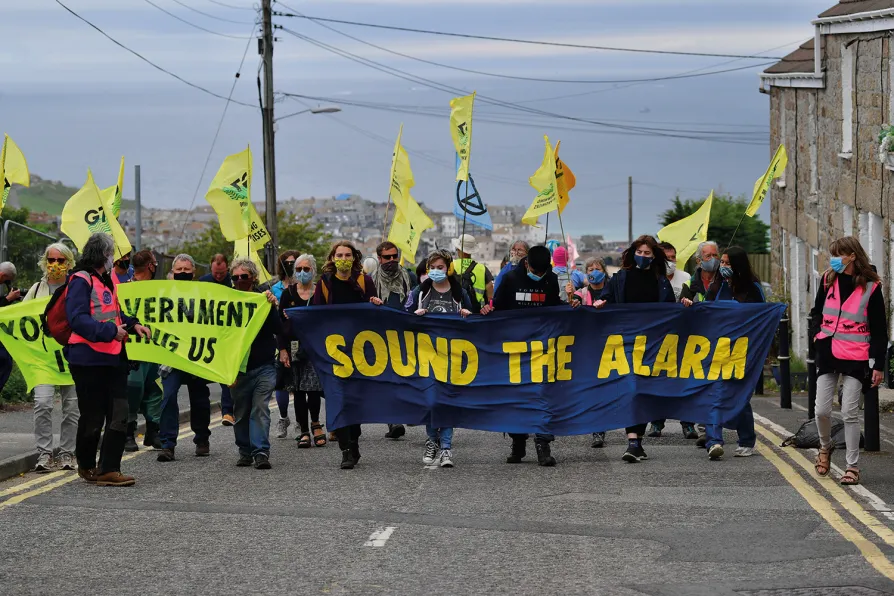Channel 4’s Dirty Business shows why private companies cannot be trusted with vital services like water, says PAUL DONOVAN

 CORNISH RESISTANCE: XR activists march through St Ives, June 2021
CORNISH RESISTANCE: XR activists march through St Ives, June 2021
THERE may be one good thing to be said about Britain’s latest Tory Prime Minister: Liz Truss doesn’t hide that she’s an enemy of the working class.
Her predecessors Boris Johnson, Theresa May and David Cameron did — to an extent. Johnson hid it behind the jovial clown image, May behind a benign blandness and Cameron behind his “big society” One Nation Conservatism nonsense.
All of them liked to claim they were the torchbearers of Margaret Thatcher’s legacy — but Truss is the one who has truly been channelling Thatcher’s dogged resolve to crush the unions and disempower the working class.

A past confrontation permanently shaped the methods the state will use to protect employers against any claims by their employees, writes MATT WRACK, but unions are readying to face the challenge

The Tory conference was a pseudo-sacred affair, with devotees paying homage in front of Thatcher’s old shrouds — and your reporter, initially barred, only need mention he’d once met her to gain access. But would she consider what was on offer a worthy legacy, asks ANDREW MURRAY

The Tories’ trouble is rooted in the British capitalist Establishment now being more disoriented and uncertain of its social mission than before, argues ANDREW MURRAY

BILL GREENSHIELDS urges an intensification of the information offensive against the impact of the spurious discourse peddled by Reform UK










